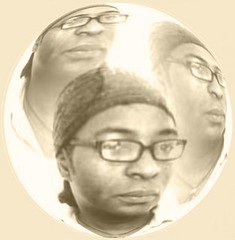-
BBC Future Of Creative Content Conference ...
Delivering Creative Future: The BBC in 2012 – speech given at QE2 Conference Centre, London Speeches Mark Thompson Director-General ... -
Time travel, as everyone knows, is not an exact science. The Tardis may be a miracle of alien technology. The sad truth is that most days it behaves more like a dodgy washer-dryer.You dial in Mercury and you get ancient Rome. The whole universe is your oyster, but where do you normally end up? Cardiff. Nice...
-
...And it's exactly when contemplating this world – the world of Facebook and YouTube and Second Life and Skype – that some people find themselves scratching their heads about the future BBC and PSB more generally...
-
...And we're going to begin before it was even called BBC One – because there wasn't a BBC Two yet. This is January 1962, 50 years before my chosen future date of 2012 ...
Now of course the first thing one notices is how little changes over the years. There's the Tonight programme in the early evening, doing much the same job The One Show is doing right now. There's Panorama more or less in the slot we've just moved it back to. There's a soap, Compact, a few police and detective series, Z-Cars, Dixon Of Dock Green and a single play on the Sunday night ...
-
BBC One is the acid-test for popular public service broadcasting – for PSB which reaches mass as opposed to niche audiences. By investing in quality, by taking pretty big creative risks – from Bleak House to The Apprentice, by making different choices than our commercial competitors, BBC One has grown in creative stature in the past few years.Over the coming years, this process needs to continue.
-
For BBC One – indeed for all our channels – we will continue to acquire TV and film titles when we believe they will enhance the schedule as a whole, but proportionate spend will continue to decline. And often we will simply walk away. Our recent decision to withdraw from the auction for the Australian soap Neighbours is a case in point ...
-
Next the BBC needs to become smaller. Not in its impact, not in its delivery of public value – it needs to increase those – but in terms of its scale as an organisation and in its operations.The BBC is already significantly smaller than it was three years ago. By the end of this financial year we expect that at least 6,000 people will have left the BBC since 2004 either through redundancy, outsourcing or the sale of some of our businesses. Central departments are a fraction of their size: the headcount reduction in Finance, for instance, has been over 50% – and we're on track to reduce the cost of Finance from around 2% of group turnover to 0.8%. The money we've saved has largely gone into content and services.
-
Between now and 2012 the search for greater productivity, for greater value from the licence fee must go on. This year's settlement and the Government's goal for the BBC to achieve net efficiency savings of 3% per year for the next six years demand it. But more importantly, we will not be able to afford our own future unless we free up substantial resources from existing commitments.
-
Contrary to some of the urban myths about the BBC, this isn't going to be easy. We've been worrying away at efficiency since the early Nineties. We've chopped back overheads sharply over the past three years. Independent analysis suggests that our programme prices are in line with ITV, Channel 4 and the market ...
Labels: BBC Press Office Press Realease ...

